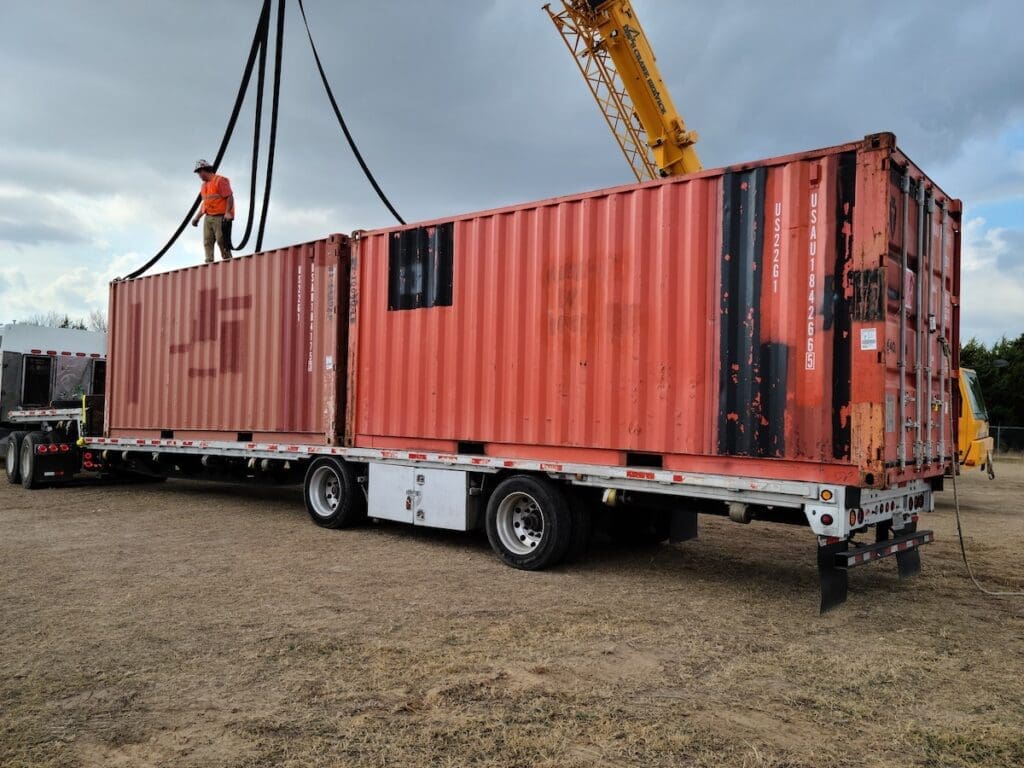Insuring your shipment is a no-brainer. What, however, does take a fair share of gray matter and a cup of your favorite caffeinated beverage is figuring out who’s covered for what, and what kind of policy you need for that abrupt surprise no one saw coming down the road.Just days after Punxsutawney Phil beheld his shadow, foreseeing six more weeks of winter, at least 50 semi-trucks, cars, and buses, one of which was a “Dancing with the Stars” cast and crew coach, were involved in a single incident. A snowstorm, one of the first in 2018, dumped seven inches of snow on Iowa, making the US-30 pileup near Ames just one of 185 crashes to which State Patrol responded that day.
The financial impacts of this crash could be catastrophic for a business, its employees and owners… That is if everyone involved in the shipment was not properly insured.
Carriers and Brokers
By law, motor carriers must carry liability and cargo insurance policies, while freight brokers are required to create a surety bond before the Federal Motor Carrier and Safety Administration issue an operating authority. These legal requirements are limited in scope and also monetary value vis-à-vis cargo, and will leave a shipper short in the case of an unforeseen calamity.
While by law carriers are liable for loss, damage and delay, they are exempt if the event is an act of a public enemy, act of God, act of the shipper, an act of a public authority, or the goods’ inherent nature. Additionally, in a shipping contract, carriers typically limit their liability in order to offer a lower transportation rate. In the event of a loss, damage, or delay, the carrier may be only liable for a maximum amount that is less than the goods’ value or might be liable on a per pound basis. Whichever the calculation, the payout will be insufficient for the shipper to recoup the financial loss.
Brokers, as stated above, are federally mandated to create a surety bond just once for the authority. It has a value of $75,000 and is used for payouts to shippers if, and only if, the freight broker has failed to carry out the contract, agreement, or arrangements for supplying transportation. Relying solely on a surety bond is really an inadvisable and irresponsible business practice. And we’ll leave it at that.
Freight brokers can and should carry policies such as:
- Contingent Cargo Legal Liability – This type of policy kicks in when a carrier’s liability and cargo insurance fails to accept the financial responsibility for the value of a cargo loss or damage.
- Contingent Auto Liability – This policy protects the broker if the contracted carrier is involved in an accident that results in injury, death, or property damage.
- General Liability – This policy is intended to cover liabilities that are not cargo or vehicle related, such as an accident while loading or unloading.
Why Cargo Insurance Is Different
After reading the above, you can see that while carriers and brokers carry insurance, the balance of focus is on protecting the carrier or the broker from risk, but not so much the shipper. Cargo insurance is intended to mitigate the shipper’s, and often the receiver’s, financial risks of loss, damage, or theft of goods and materials while stored and in transit. The coverage ceases once custody of the shipment is transferred to the receiver.
As Next Exit Logistics is a truck freight transportation brokerage, this blog is focusing on insurance cover for land cargo. This category of cargo insurance is limited to the United States and addresses the risk of theft, damage, traffic accidents, and more. Each insurance provider has their own particular choice of words or phraseology to describe their coverage offerings and their limitations. These are the basic elements of what you want to consider for your shipment before you start:
- Total Loss Coverage – Collision, acts of God, flood, fire, locusts, you name it, the shipment is covered. Oh but there is a catch: the only case in which a claim can be made is if, and only if, the entire shipment is destroyed.
- Basic Risk Coverage – Take the tenets of Total Loss Coverage and include theft or non-delivery, but again the loss must be the entire shipment.
- All Risk Coverage – Addresses the shortcomings of the first two in that it will cover partial as well as total loss. It is a comprehensive door-to-door policy that covers events such as civil unrest, war, and labor actions.
- Door-to-Door Coverage – A vitally important point, especially if your cargo is highly valuable or hazardous. This policy will cover your cargo while it is in the possession of the carrier. Once the cargo is delivered, the coverage ceases.
What is important is that you work closely with your freight broker to ensure the carrier has the correct and current insurance certificates, and that the brokerage has appropriate policies in place. While the brokerage may also assist you in identifying the types of insurance you may need, for extremely valuable or hazardous cargo or if different modes of transportation will be used, enlist a legal advisor to read through the policy documents.
At Next Exit Logistics, we can arrange the shipping of any item; we specialize in providing freight services for unusual and impossible oversize or overweight shipments! Our customers say that time and time again; Next Exit Logistics eliminates frustration by managing the freight shipping process from beginning to end.
Our seasoned background as a freight management brokerage is backed by our safety and on time track record for organizing the movement of heavy haul freight quickly and efficiently. What’s more, we are certified to arrange the shipment of hazardous materials.
To learn more about our services, call Next Exit Logistics at 866-624-2661. You can also contact us via e-mail.




